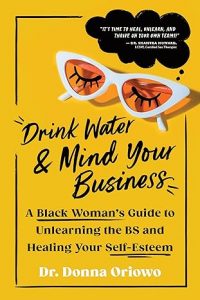What Fiction Taught Me About Truth
4 min read
They say fiction is a lie that tells the truth. But what they don’t say is that it’s sometimes the only way some of us can safely tell it.
I didn’t grow up in a place that encouraged vulnerability. Silence was a kind of armor. Smiles were currency, and pain was private. You kept it in the house, in your chest, in your notebook if you were lucky. So, when I started writing stories—little made-up tales about girls with wings or boys who could time-travel—I didn’t think I was telling the truth. But I was. Every single time.
I didn’t realize it then, but fiction gave me a back door to honesty.
The Lie of “Escapism”
People love to call fiction an escape. And sometimes it is. But that’s not a flaw, it’s a function. Escape doesn’t mean retreat. Sometimes it means strategy. A reroute around shame. A pause to breathe. A temporary world where you can examine the real one without its weight crushing your chest.
In fiction, I could explore betrayal without confronting the people I wasn’t ready to forgive. I could write characters who made choices I was afraid to make. I could grieve losses I hadn’t given myself permission to mourn. And sometimes, I could rewrite endings, because closure isn’t always an option.
Fiction isn’t fake. It’s curated. Its focused truth wrapped in the glitter of what-if.
Characters as Mirrors
I’ve written characters I didn’t understand until years later, until I went through what they went through. One character was angry at the world for reasons I couldn’t fully explain. I thought I made her up. But in hindsight, she was me before I had the language to name my rage.
Another character forgave too easily. I judged her. Then I realized she wasn’t weak, she was exhausted. She didn’t have the luxury of holding grudges while trying to survive. That was a truth I didn’t want to admit until I watched it unfold on the page.
Fiction holds a mirror to the parts of ourselves we bury the deepest. Sometimes writing feels like discovery. Other times, it feels like confession.
Truth Without Preaching
The beauty of fiction is that it doesn’t preach. It doesn’t point a finger or demand you agree. It just presents a world, and asks: Is this you?
I’ve learned more about racism, grief, resilience, and healing from novels than I have from lectures. Not because the novels were more factual, but because they were more felt. Fiction doesn’t ask you to think, it makes you feel, and you carry the feeling with you long after the last words are read.
The Writer’s Responsibility
As a writer, I used to think my job was to entertain. Then I thought it was to educate. Now I think it’s something messier, deeper. My job is to reveal. Not just the world, but the ache under the world. The contradictions. The questions. The truths we feel in our bones but are scared to say out loud.
Fiction is how I’ve told truths I was too afraid to tell under my own name. It’s how I’ve processed trauma, honored joy, and dared to imagine something better.
And maybe that’s the greatest truth fiction ever taught me: Imagination is not the opposite of truth. It’s the beginning of it.
Truth That Feels Like Home
Some of the most meaningful messages I’ve ever received as a writer weren’t praise. They were quiet little notes that said:
“I didn’t know anyone else felt that way.”
Or:
“Your story helped me put words to something I couldn’t explain.”
That’s what fiction does. It sneaks past your defenses and hands you something real. Something familiar. Something that says: You’re not alone in this.
So, what did fiction teach me about truth?
That the stories we make up are often the most honest things we’ll ever write.
Imagination often leads us where honesty alone can’t begin.
That every sentence we craft in a world we invented can echo in the lives we’re living.
Fiction gave me my voice.
And that voice? It’s never been fake.
What has fiction revealed to you about your own truth? Drop your thoughts in the comments or share your favorite line from a story that stayed with you.







